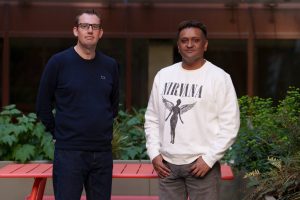Airport upgrades database with latest software aimed at providing more flexibility

Liverpool John Lennon Airport (LJLA) has replaced its legacy Airport Operational Database (AODB) system with new Airport Hive software.
Airport Hive was developed by airport software specialist Azinq, based in the Sci-Tech Daresbury Enterprise Zone.
The new system is a cloud based modular suite of airport operational products, that provide a direct replacement for a traditional AODB.
It is aimed at providing huge flexibility delivered through its API-led design, with event-driven microservice architecture.
LJLA can now access all its data securely and easily incorporate many systems into the airport eco-system. This will turbocharge operational efficiency, empower data-driven collaborative decision-making, and enhance the passenger experience.
Airport Hive’s modular design allows components to be developed and updated separately and then plugged in when required. It can continue to adapt and evolve without any operational disruption and stay up to date with the latest technologies. This ensures Airport Hive is always supported and evolves continually.
Azinq sofware has a successful track record empowering 20 airports with more than 150 products, including Edinburgh, Calgary, Glasgow, Keflavik, Luton, Manchester, Muscat and Stansted.
Paul Staples, LJLA director, airport operations, said: “Working with Azinq and Airport Hive has ensured we have the right foundation and technology core for now and the future.
“It enables our operation to be more efficient and offer a better end service to our passengers.”
Chris Taylor, Azinq managing partner and co-founder, said: “Airport Hive is transformative software designed to streamline operations, enhance efficiency, and empower airports to thrive in today’s dynamic operational landscape.
“Focusing on user-centric design and advanced functionality, Airport Hive represents a significant leap forward in technology for Liverpool John Lennon Airport. It not only meets their current needs, but also anticipates and adapts to the evolving demands of the future.”







